Livedoid Vasculopathy
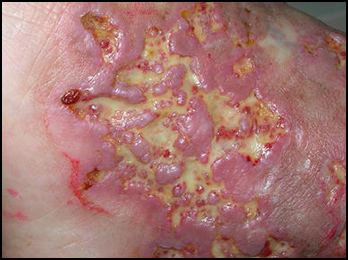
Introduction
Livedoid vasculopathy is a painful and chronic blood vessel disorder that results in the formation of ulcers and scars on the lower legs and feet. These ulcers are very painful, chronic in nature and relapses often. Lesions of livedoid vasculopathy appear as a purple or red color marks that are painful to touch and gradually progress to form ulcers. Women are more prone to get affected with this disorder and symptoms usually worsen in summers and winters. Lupus thrombophilia is the condition which is commonly found associated with livedoid vasculopathy. Diagnosis of this thrombo-occlusive cutaneous vasculopathy is confirmed through a biopsy examination of the skin of the affected area.
Pathogenesis of this condition is not clear but this disorder can occur alone or in combination with other systemic diseases. It is also known as ‘atrophieblanche’ due to the presence of ivory-white, smooth plaques that are characteristic features of livedoid vasculopathy. These plaques are produced due to the recurrent ulcer formation in the affected area. This type of plaque deposition can also occur in certain venous insufficiency disorders. However the term vasculitis should be avoided being used for it as there is no inflammation in the blood vessels.
What is the Causes of Livedoid Vasculopathy?
The exact pathology of livedoid vasculopathy remains unknown but there are certain factors that result in the occurrence of this condition. It is an autoimmune disorder. Hypercoagulability is the main mechanism which is behind this disorder. There are some genetic mutations in certain coagulatory factors which result in hypercoagulability in the blood causing livedoid vasculopathy. There are intraluminal thrombosis formation and proliferation of the endometrium, resulting in the formation of ulcers and eventually scar formation.
However it is found to be associated with some of the systemic diseases :-
- Rheumatoid arthritis
- Scleroderma
- Systemic lupus erythematosus
- Sjogren’s syndrome
- Polyarteritisnodosa
- Mixed and undifferentiated connective tissue disease
- Systemic lupus erythematosus
What are the Signs and Symptoms of Livedoid Vasculopathy?
- Recurrent and chronic ulcer formation
- Severe pain in ulcers
- Burning sensation
- Irregular atrophie blanche
- Raynaud phenomenon
- Purple or red color spots
How can Livedoid Vasculopathy be Diagnosed?
Patient’s history is very important in every case as half of the case is revealed in it. After history physician can ask the patient to go for certain tests in order to confirm the diagnosis.
- CBC (Complete blood count)
- Study of coagulatory factors
- Homocysteine levels
- Lupus coagulant
There are some diseases which may also result in the formation of similar types of ulcers, hence they are to rule out in order to confirm the diagnosis of Livedoid vasculopathy.
- Systemic lupus erythematosus
- Rheumatoid arthritis
- Small vessel vasculitis
- Systemic sclerosis
- Malignant atrophic papulosis
- Cutaneous polyarteritisnodosa
How to Treat Livedoid Vasculopathy?
Ayurveda is the science of life which offers a natural treatment for all human ailments. It helps to relieve the sufferings of human life naturally. Herbs and herbal remedies are the main mode of treatment in Ayurveda. As per Ayurveda, in this disease there is an aggravation of Pitta dosha which vitiates the Rakta dhatu and results in ulcerations.
Planet Ayurveda is a renowned Ayurvedic clinic which comes up with the treatment of Livedoid vasculopathy naturally. They consists of purely Ayurvedic medicines that are prepared from authentic herbs of the best quality. There are no chemicals, preservatives, additives, dye or fillers in these remedies. No remedies are tested on animals and are purely vegetarian.
1. Kaishore Guggul
These herbal tablets are composed of various amazing herbs like Amalaki (Emblica officinalis), Bibhitaki (Terminalia bellirica), Haritaki (Terminalia chebula), Guggul (Commiphora mukul), Guduchi (Tinospora cordifolia) etc. Pain and inflammation are relieved by these herbal tablets and also help to remove accumulated toxins in the body.
Dosage- Take 2 tablets twice daily after meals with plain water.
2. Pitta Balance
As the name suggests, these capsules are used for calming the Pitta dosha and treating diseases caused due to its aggravation. These herbal capsules are prepared from natural compounds like Praval Pishti, Akik pishti, Jawar mohra pishti, Kamdudha ras, Mukta pishti and giloy satva. Pitta balance capsules will help in relieving various complaints like a burning sensation, the sensation of heat in the body, skin diseases, inflammation, and cold sores.
Dosage- Take 1 capsule twice daily after meals with plain water.
3. Boswellia Curcumin
Boswellia serrrata (Shallaki) and Curcuma longa (Curcumin) are the two herbs used in these herbal capsules that help to treat pain and inflammation. As there is much pain and burning in ulcers so these capsules help to relieve all these complaints and help in healing the ulcers naturally. These capsules are the best treatment for pain and inflammation that too without any side effects.
Dosage- Take 1 capsule twice daily after meals with plain water
4. Gotu Kola Capsules
These are the single herb capsules that are made from Centellaasiatica (Gotu kola) herb which possesses amazing medicinal properties. It will help in preventing the formation of thrombosis and treating the hypercoagulatory condition of the blood. Hypercoagulation is the main reason for the occurrence of ulcers in Livedoidvasculopathy, hence treating it means demolition of the disease permanently.
Dosage- Take 2 capsules twice daily after meals with plain water.
5. Arjuna Capsules
These capsules are made from the bark of Arjuna tree which possesses wonderful medicinal properties that help in treating this condition. These capsules help in preventing the damage to the blood vessel so that there is no ulceration. It also helps in the detoxification of the blood and eliminates all the toxins and impurities from it.
Dosage- Take 1 capsule twice daily after meals with plain water.
Ancient Verse

Meaning –Arjuna is astringent in taste and cool in potency. It is a boon for heart diseases. This herb is used to heal injuries, improves general weakness, and works as an antidote. Blood, lymph disorders, diabetes, diabetic foot, or diabetic ulcers are treated with this herb. Arjuna pacifies Pitta and Kapha dosha.
Reference – Bhavprakash Nighantu, Vatadivarga, Shloka no. 27


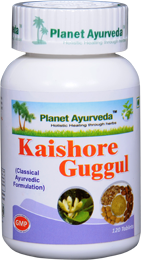
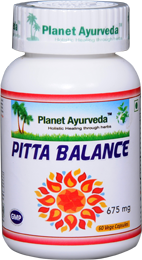
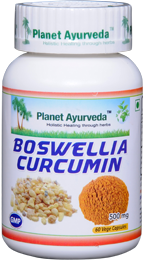
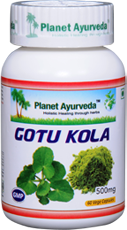
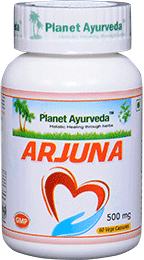


1 thought on “Livedoid Vasculopathy”